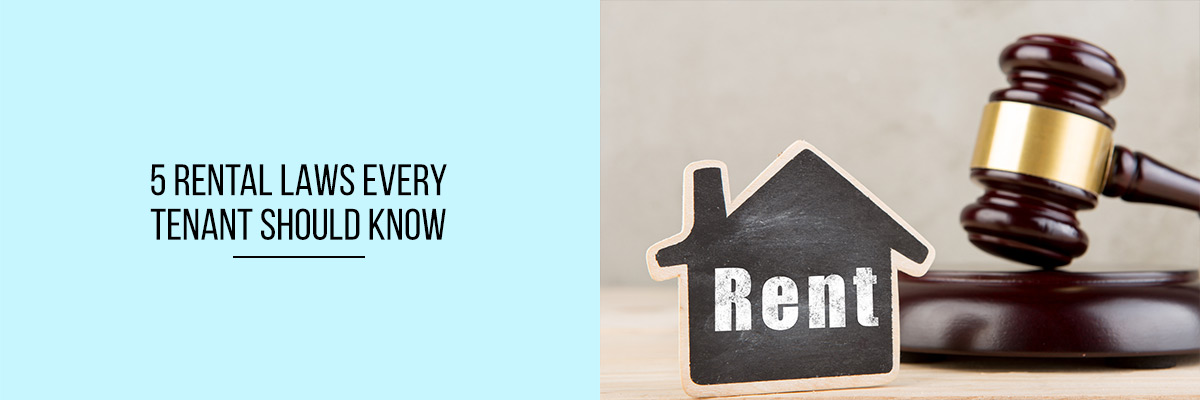Both tenants and landlords have their specific rights protected by law. These laws are enacted by the state government and established for the protection of both parties.
If you are already renting or planning to rent in the near future, there are laws that you need to be aware of. Knowledge of these common laws will protect tenants from any sort of fraud and help you have a positive rental experience. Here are 5 rental laws you should know:
1. The Fair Housing Act
Part of the Civil Rights Act 1968, the Fair Housing Act allows tenants to rent the house of their choice and live in any community without discrimination on race, color, religion, family status, sex, and national origin. This law restricts landlords and housing agencies from denying tenants applications based on discriminatory reasons.
In case of suspecting any such biased acts, tenants can complain to the U.S. Department of Housing and Urban Development.
This law also defends people with disabilities, old age or younger couples, service animals, and limitations on the number of children in a household. Denial based on any of the above-mentioned points for a rental application is illegal.
To get a better knowledge of the Fair Housing Act, you can join the Fair housing training program to know your housing rights and use them to defend your rights if you ever need them.
2. Privacy
Every tenant is entitled to privacy and under federal laws, landlords and housing agencies are to respect the tenant’s privacy. Landlords and housing managers must notify tenants prior to their visit for any purposes, such as repairs, house visits, or other reasons. Showing up at the gate without any notice is unlawful and tenants can sue the landlord. If you are unsure of the time limit for prior notification, you can always check your agreement.
3. Background and Credit Checks
For running background checks and credit checks, landlords and housing agencies are required to ask for permission. Running investigations without authorization is illegal.
Landlords and housing agencies are also obliged to inform tenants if their rental application was denied based on background checks or credit checks. A copy of the report must also be provided.
4. Eviction notices
Upon signing the agreement, landlords and housing agencies cannot evict tenants unless provided with a viable reason such as not paying the rent, security reasons for neighbors, and criminal or drug-related activities.
Although the law allows landlords to evict tenants if they invade a neighbor’s property, create a public disturbance, and perform unlawful acts, landlords must send a prior eviction notice to ask tenants to vacate the property within the time limit.
5. Essential Repairs and Supplies
Every rental house is entitled to come with its essential supplies and must be repaired before tenants move in. These supplies and repairs are both compulsory for tenants and landlords to maintain, as to maintain proper and sanitary living conditions and standards. Failure to comply can result in unwanted circumstances.
Conclusion
Laws can be a tricky and time-consuming process, but it sure aids in various parts. Familiarizing yourself with these laws can help you protect yourself if you ever need it.


